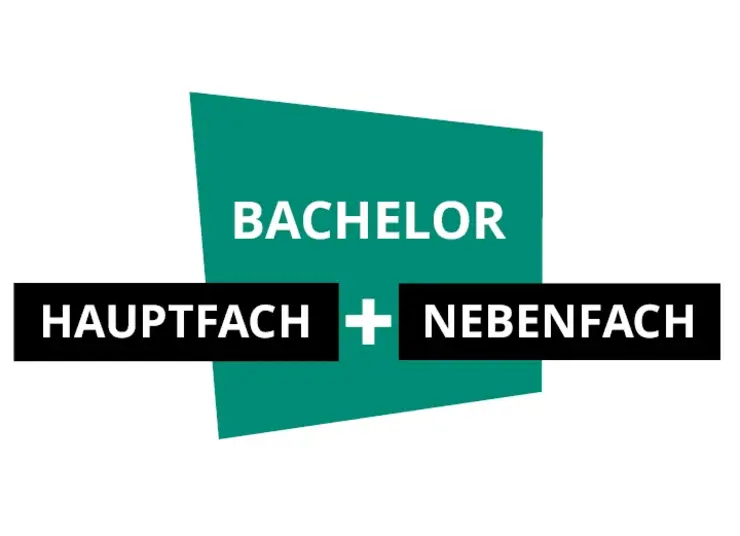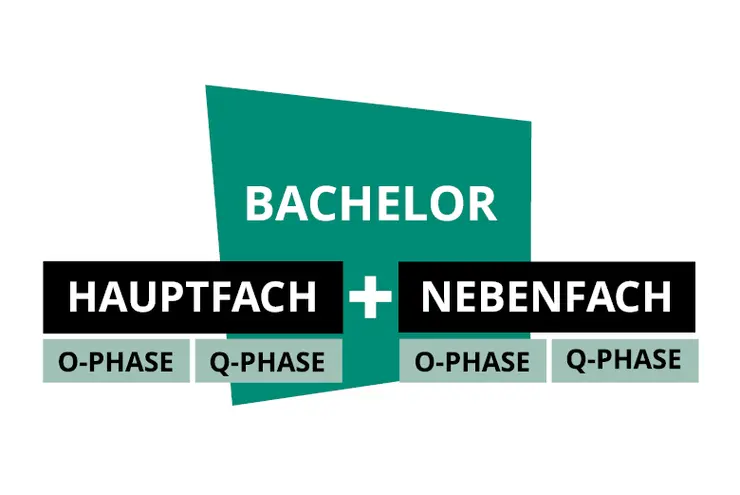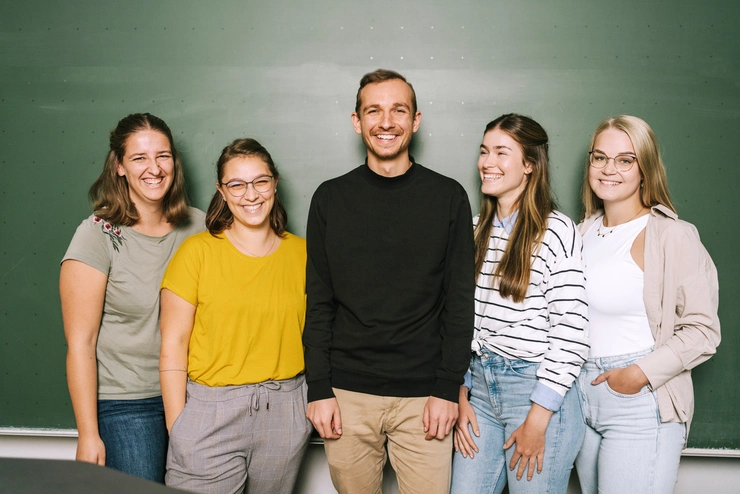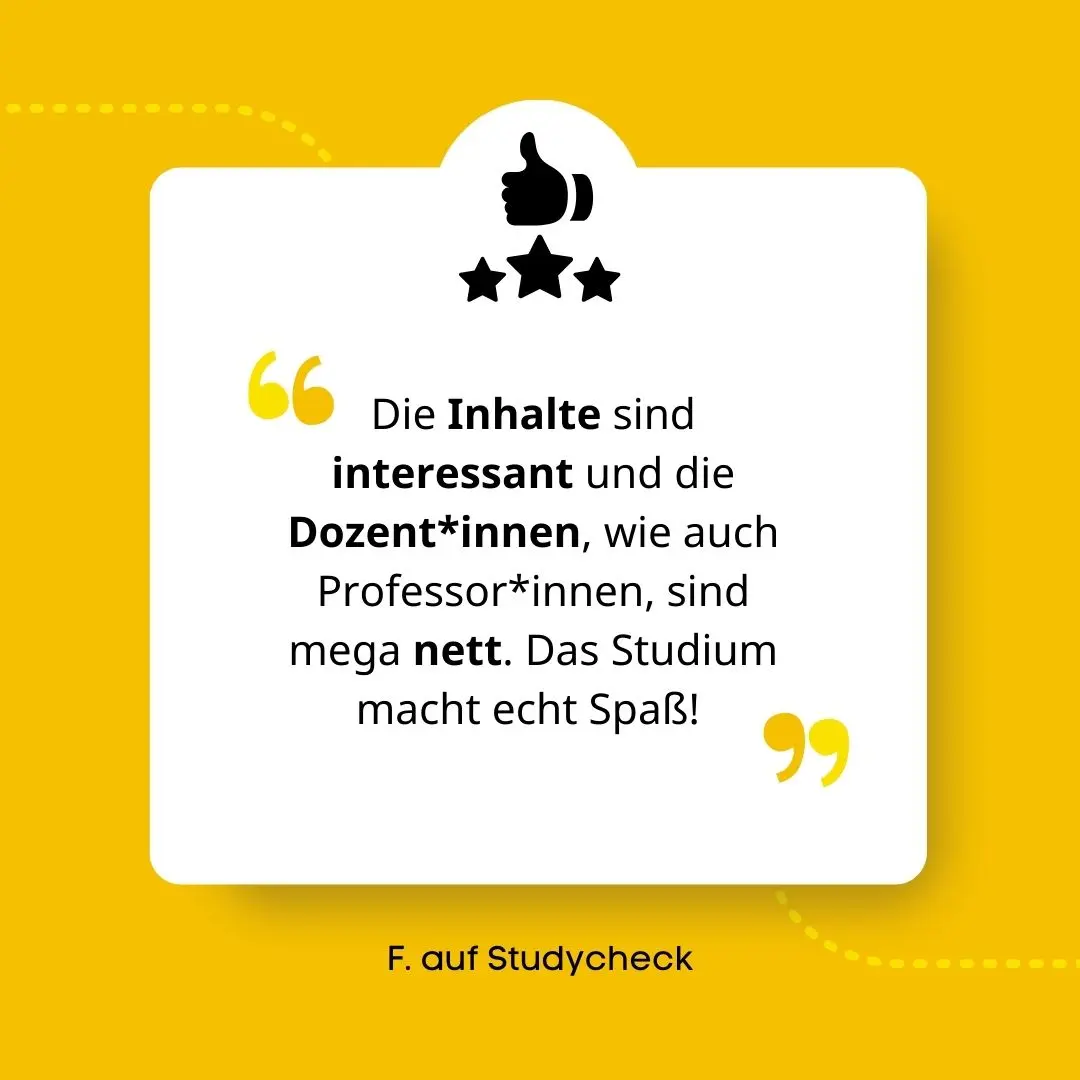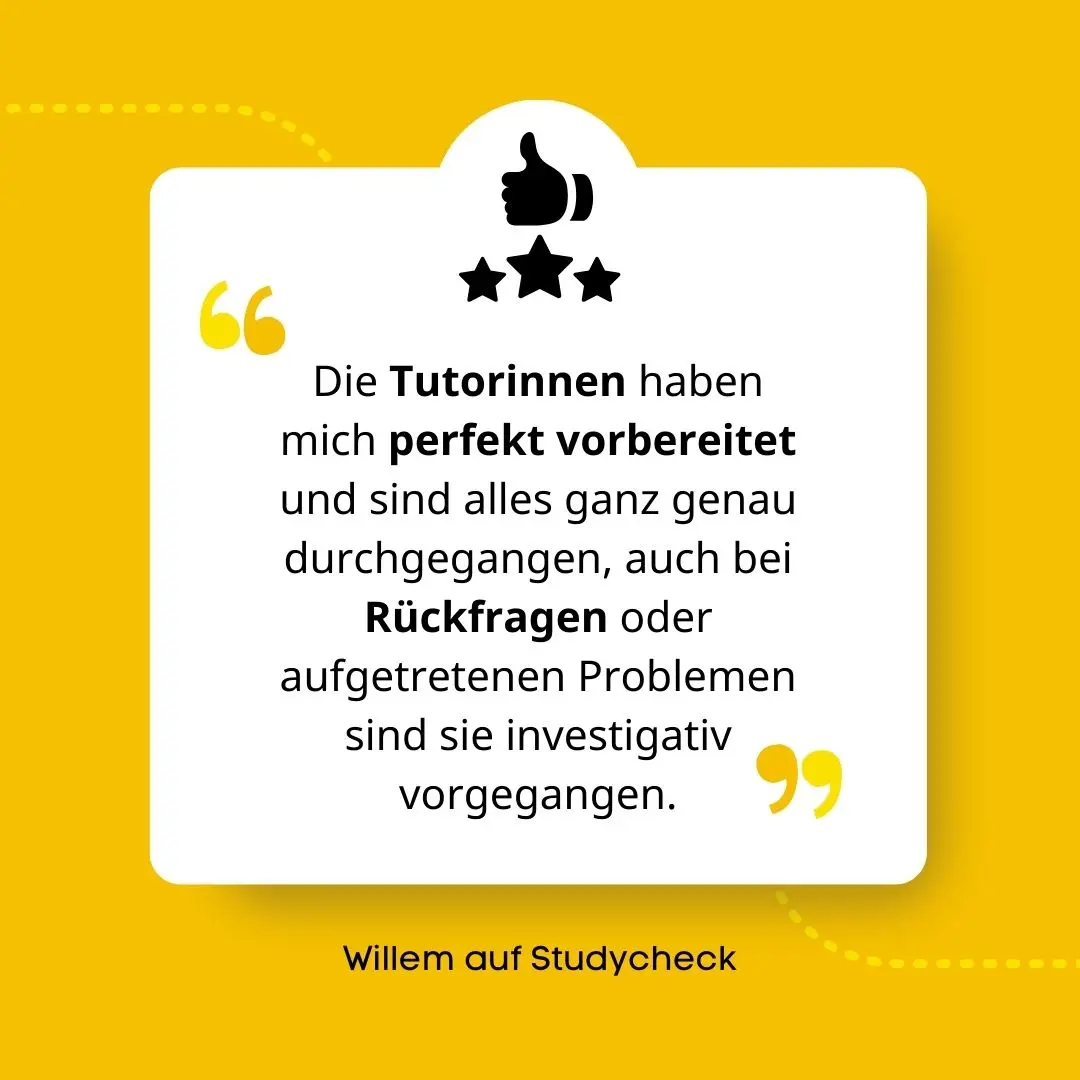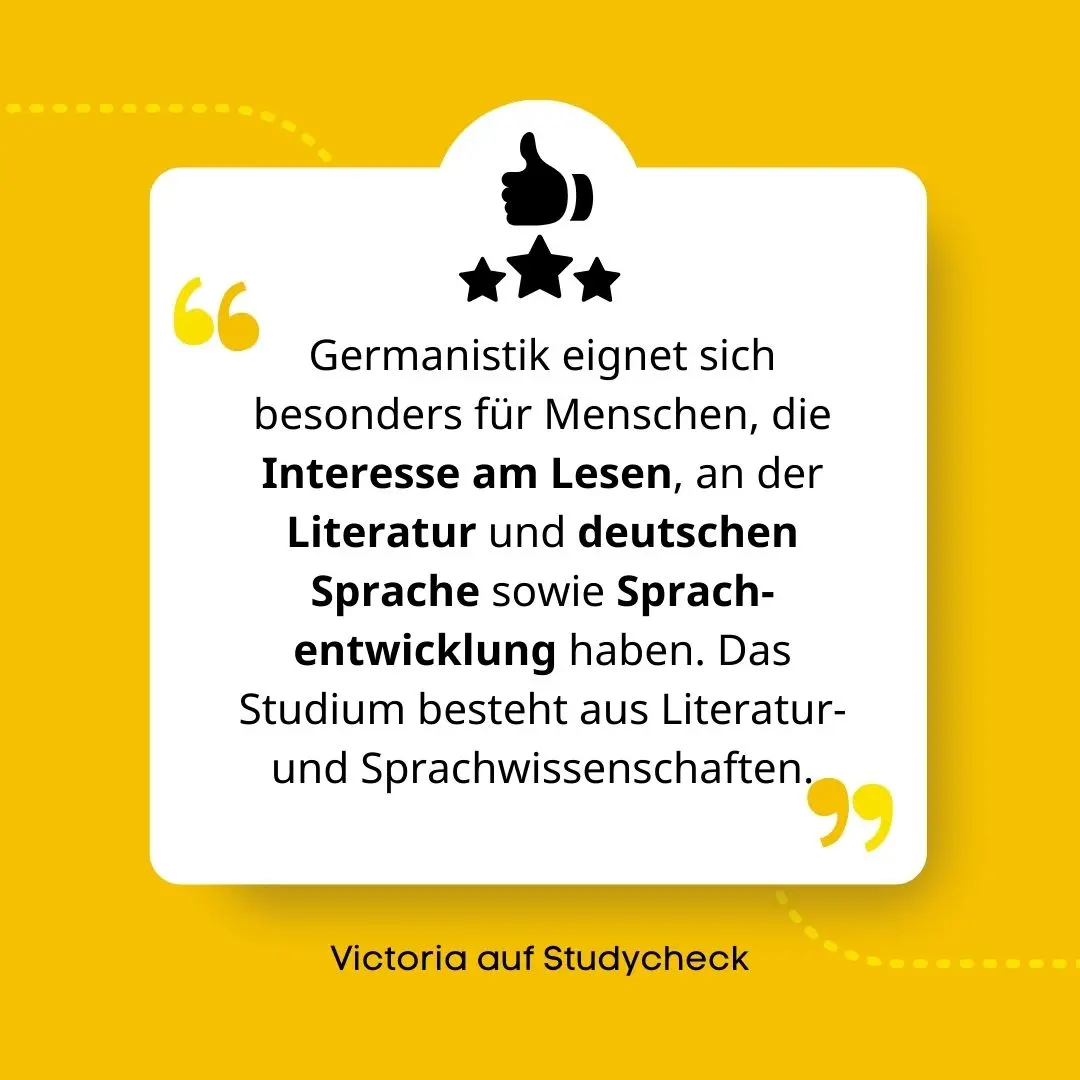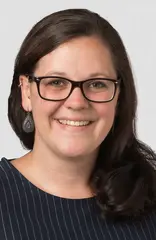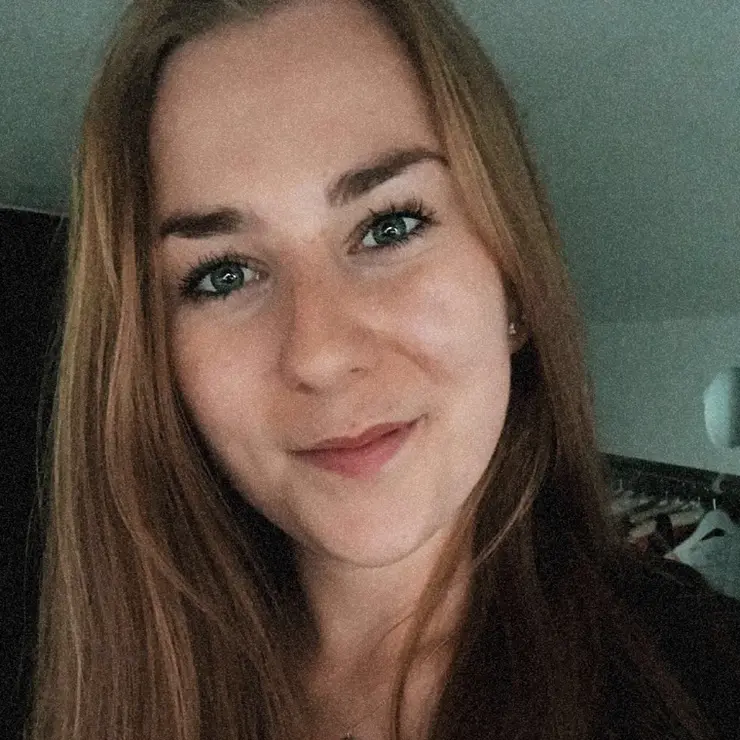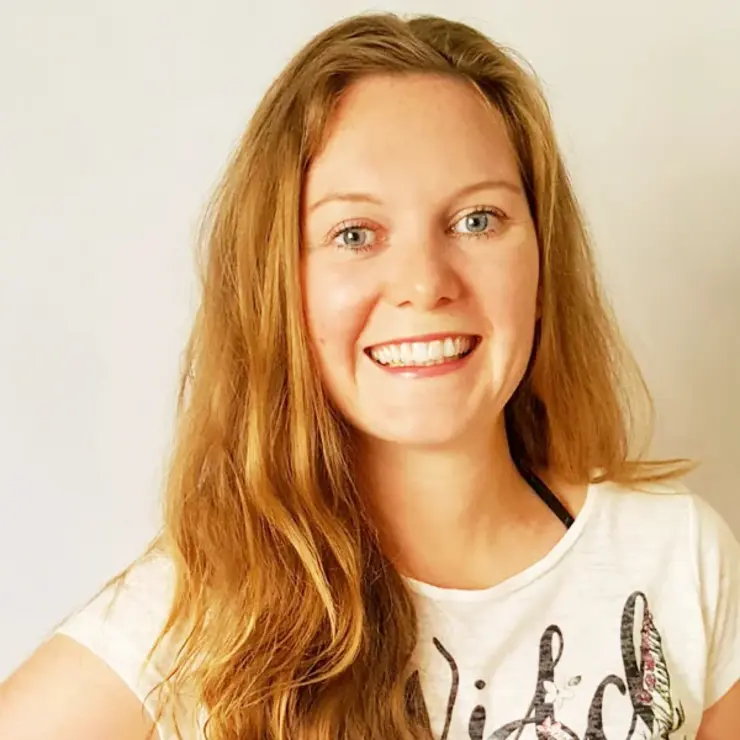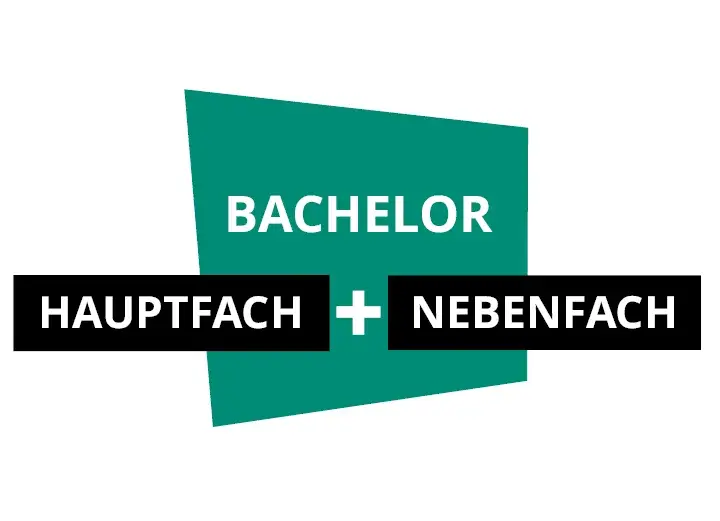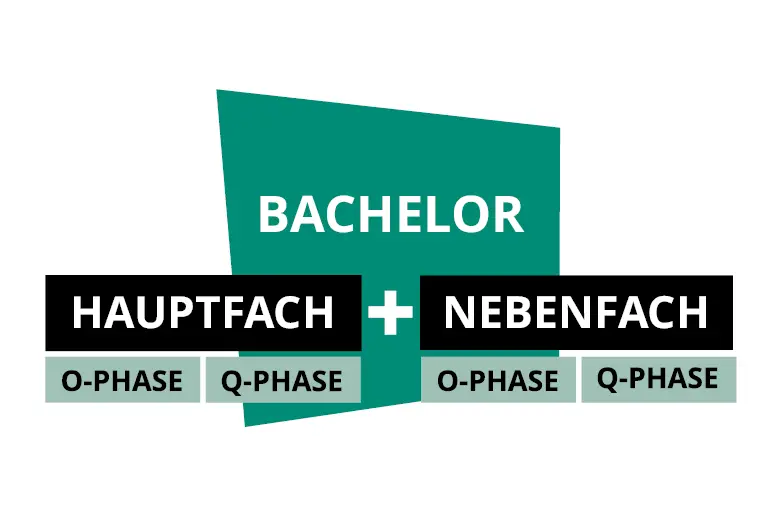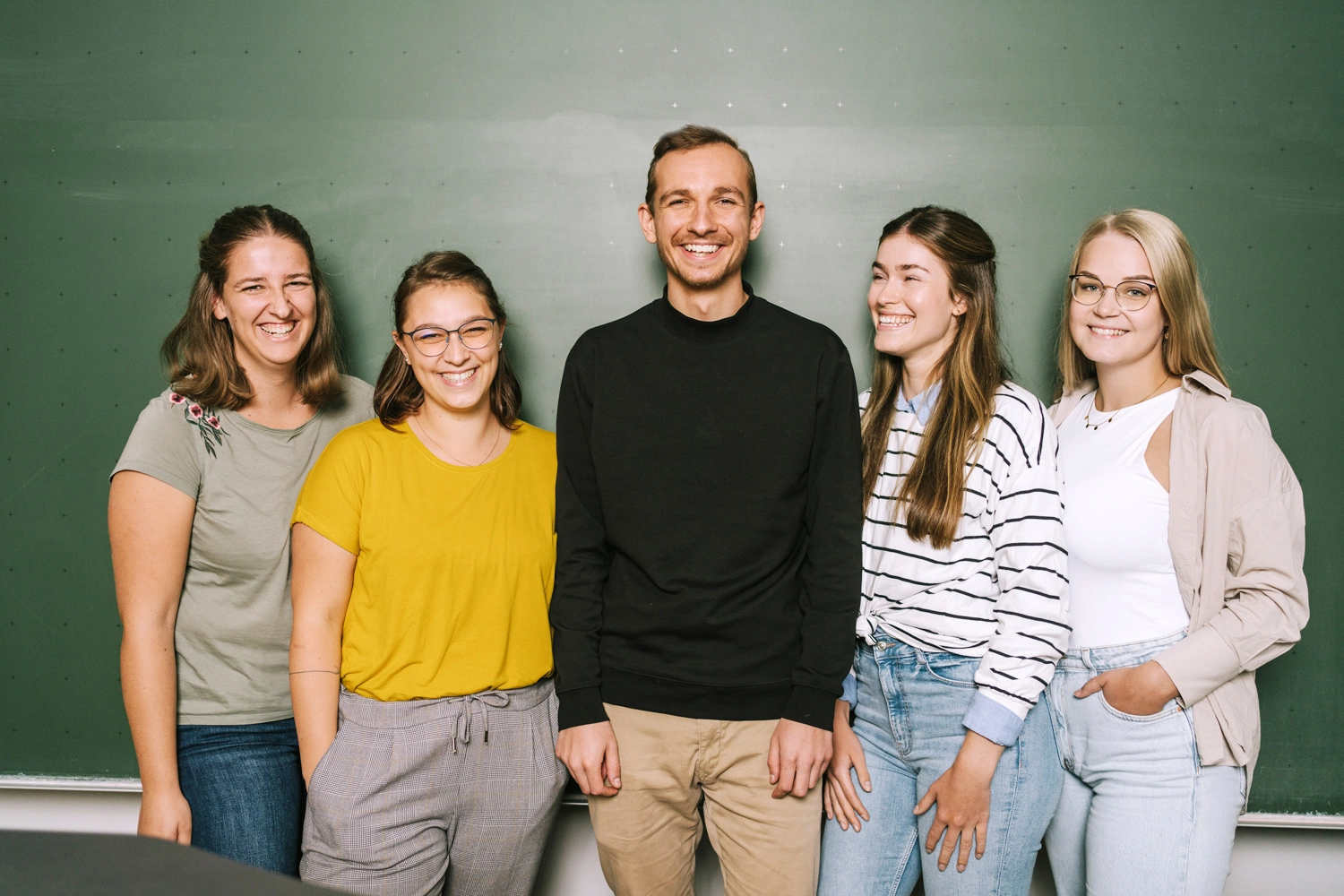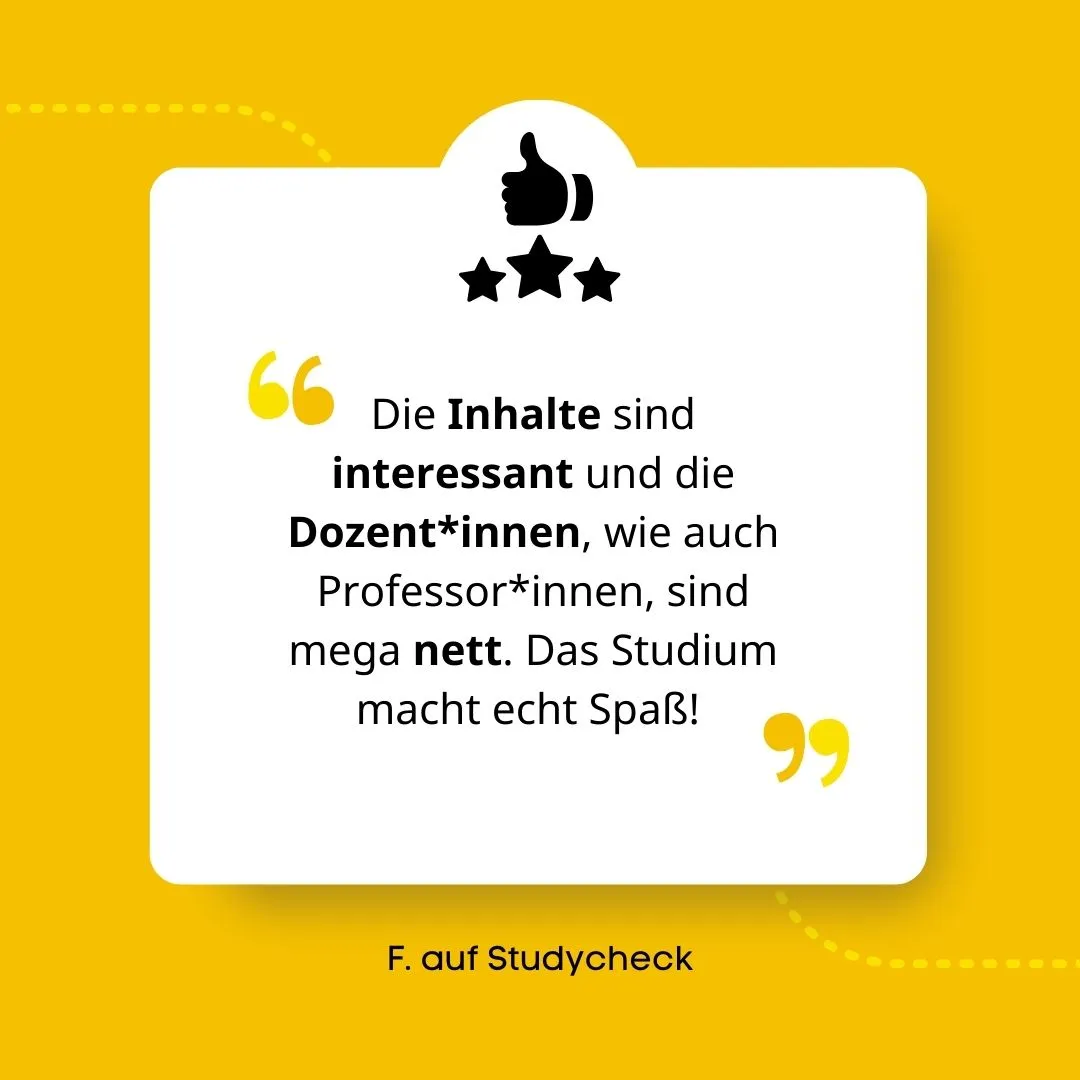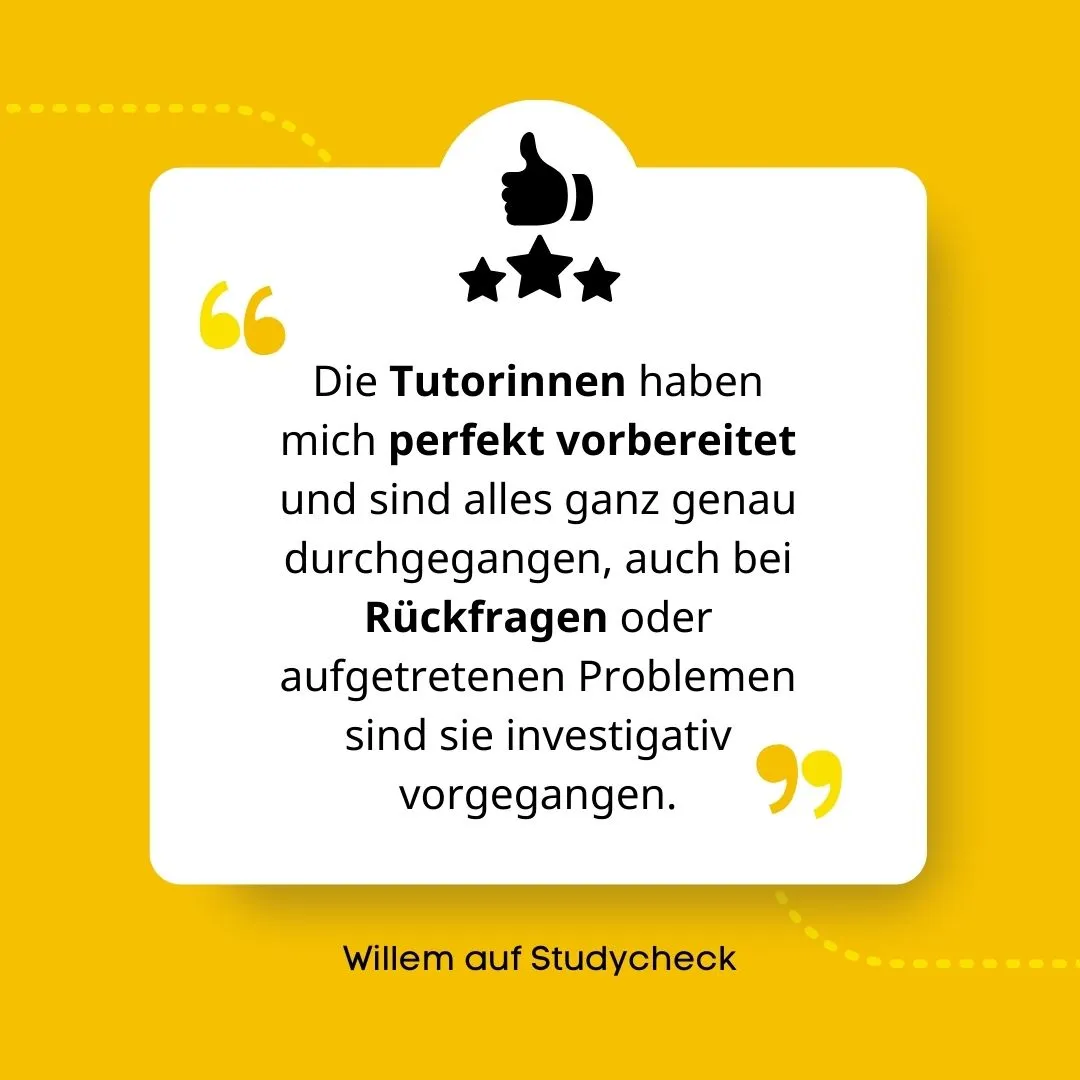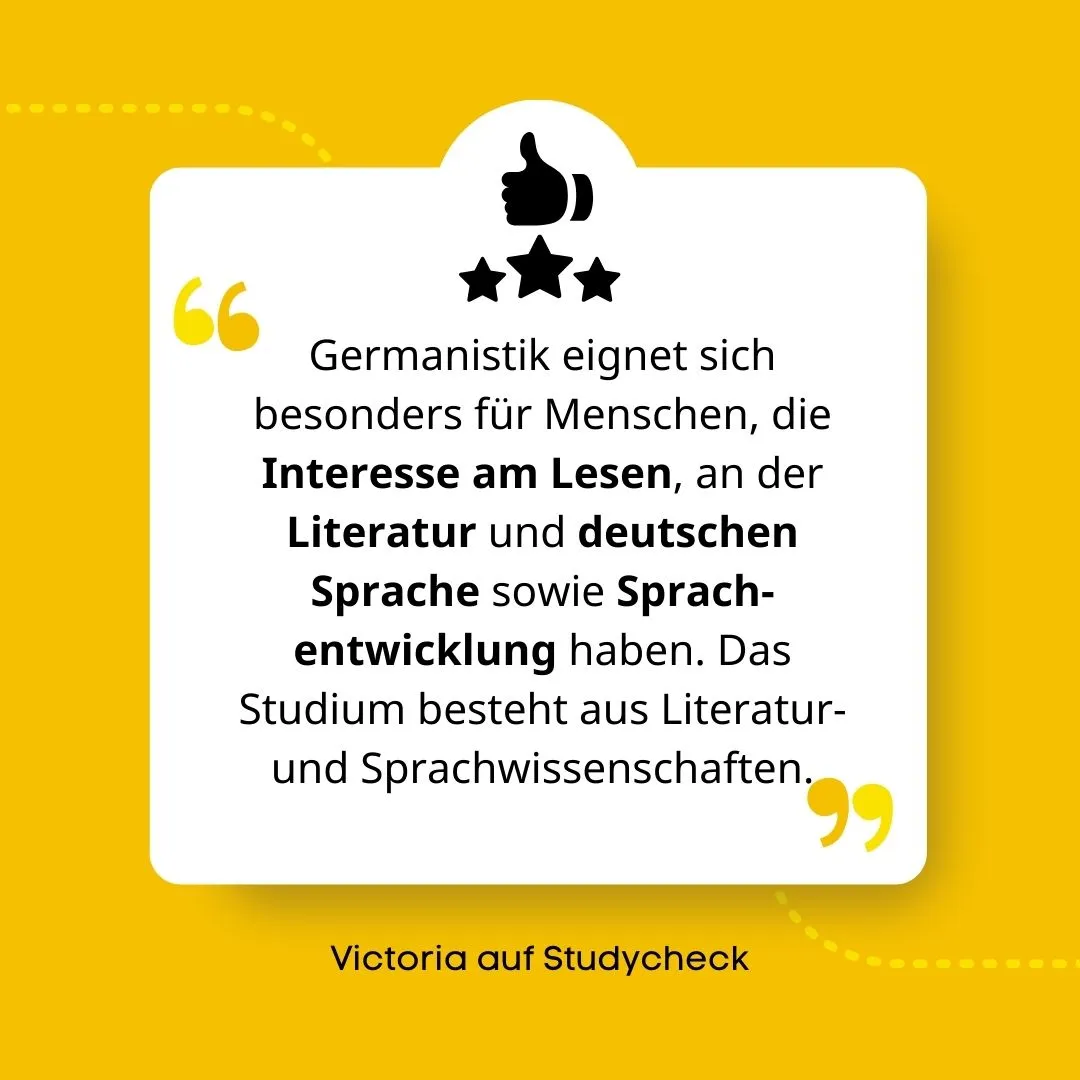Course content of the German studies programme
Do you love the German language and literature? Then you've come to the right place. When studying German Studies, you will analyse the German language and German literature using scientific methods.
Topics in German Linguistics:
- sructures and functions of the contemporary German language,
- linguistic varieties (dialects, youth language, specialised languages, etc.),
- use of German in communication situations and media,
- history of the German language,
- forms and functions of language change.
Topics in German Literary Studies:
- structures, functions and special features of literary texts,
- different genres, text and character theories,
- questions of historical poetics,
- current theories and methods.
Jobs after studying German Studies
What can you do with a degree in German Studies afterwards? Become an expert in German language and literature! Our German Studies graduates work in these professional fields, among others:
- in teaching German as a subject at primary schools, secondary schools, special schools or vocational schools
(provided a teaching-related Master's degree programme is completed), - in language counselling and language design,
- in the media and journalism,
- in press and public relations work,
- in management consultancy and media consultancy,
- in adult education and further education,
- in publishing and librarianship,
- in editing and as an author,
- in the theatre,
- in theatre and cultural management.
Structure of the German studies programme
The first two semesters are known as the orientation phase (O-phase, 1st-2nd semester) . During this time, you can explore the study system, familiarise yourself with the study and examination regulations and test their application. After completing the O-phase, you have the opportunity to change subject if necessary.
After successfully completing this phase, you can move on to the qualification phase (Q-phase, 3rd-6th semester). In this phase, you will deepen your knowledge of the course content and set your personal specialisation. The Q-phase ends in the major subject with the completion of your bachelor's thesis.
Orientation phase (1st - 2nd semester)
Compulsory modules:
- Fundamentals of Literary Studies (9 CP)
- Language as a system (9 CP)
- Introduction to Modern German Literary Studies (6 CP)
- Introduction to German Studies (6 CP)
Qualification phase (3rd-6th semester)
Compulsory modules:
- German as a target language (9 CP)
- History of Language and Linguistics (9 CP)
- History of Literature (9 CP)
- Language in use (9 CP)
- Text analysis and literary theory (9 CP)
- Texts, Media, Culture (9 CP)
- Final module with bachelor's thesis (12 CP)
One compulsory elective module for the professional field and compulsory elective modules for the Studium Fundamentale (18 CP) must be successfully completed.
Students with the study objective of a secondary school teaching profession or a teaching profession for vocational schools must also complete the modules "Practical School Studies - Secondary Schools" and "Educational Science Fundamentals".
In the respective examination regulations you will find important information on the study objectives and content, language requirements, the structure of the programme as well as the teaching units and module examinations.
Examination regulations major subject German Studies 2021 (pdf)
Examination regulations minor subject German Studies 2021 (pdf)
A semester abroad offers the opportunity to develop intercultural skills and get to know new perspectives, which is enriching both professionally and personally. It also promotes independence and improves language skills, which increases your career opportunities.
The International Office will be happy to help you organise your stay abroad.
Internships during your studies
- Interdisciplinary internship for vocational field
- Optional: career-orientated internship
Are you studying German Studies for a teaching profession? Internships for students with the career goal of a teaching profession:
- Two school-related internships in the Bachelor's programme
Study German Studies as a teaching profession
If you would like to teach German at vocational schools, choose German Studies as a general subject on the Master of Education Vocational Schools programme. In the event that you only have the vocational subject specialisation but not the requirements for a general education subject, you can catch up on the subject-specific basics parallel to the master's programme .
If you would like to become a Special Education and Inclusive Pedagogy teacher, you must choose Special Education and Inclusive Pedagogy as your major subject and German Studies as your minor subject in your Bachelor's degree. You will then study for a Master of Education in Special Needs Pedagogy and Inclusive Education.
Download flyer "How do I become a Special Needs Pedagogy teacher?"
If you would like to teach at primary schools, you must choose the major subject Primary Education and the minor subject German Studies in your Bachelor's degree. You will then go on to study the Master of Education Primary Schools.
If you would like to teach at secondary schools, you must choose German Studies and another subject relevant to teaching in your Bachelor's degree. You will then study for a Master of Education secondary schools. You can also study German Studies as a dual degree programme (dual teaching profession secondary schools).
Details of the German Studies

Open Day
Numerous information and counselling services offer you the opportunity to see the study and living conditions in Erfurt for yourself at the Open Day. Get to know the green campus and the beautiful old town centre on guided tours. Information about the programme: Open Day
Discovery Days
Discovery Days at the University of Erfurt mean experiencing "studying up close". Within a week (on as many days as you like) you can attend selected courses (lectures or seminars) and get a taste of campus life. Information and programme: Discovery Days
You may also be interested in these degree programmes
Are you interested in the languages study programmes?
Bachelor's programme English and American Studies (English)
Bachelor's programme Romance Studies (French or Spanish)
Bachelor's programme Slavic Studies (Russian)
...or rather for the Culture and Literature programme?
Bachelor's programme Literary Studies
Discover more fields of study at the University of Erfurt!
Prerequisites (without NC)
Language requirements in the degree programme
You will need the following language skills by the end of the German Studies programme:
- Proficiency in two modern foreign languages at level B1 or one modern foreign language at level B1 and the Latinum (major subject only)
Students who have obtained their university entrance qualification in a language other than German must provide proof of proficiency in another modern foreign language at level B1 or the Latinum in addition to the DSH certificate.
Language Centre
The Language Centre offers around 140 language courses per semester in 16 modern and ancient (foreign) languages.
It supports you in acquiring and improving your language skills.
www.uni-erfurt.de/sprachenzentrum
Study German Studies without NC
The bachelor's programme in German Studies has no admission restrictions (no admissions restricted courses). Start your degree programme and enrol directly in German Studies as a major or minor subject (matriculation and registration). Please note the admission restrictions for your second subject (two-subject Bachelor's programme).
-
Language skills: Studying German Studies will deepen your knowledge of the German language in terms of grammar, style, and expression. This can improve your language skills and give you a deep understanding of the German language.
-
Cultural understanding: German Studies allows you to understand German culture in all its facets, from history to Arts to modern lifestyle.
-
Literary Studies skills: By studying German Studies, you will develop skills in analysing and interpreting literary texts. This can be of great value not only in literature itself, but also in other appointments.
-
Communication skills: By writing essays, analyses and academic papers, you will develop strong written expression skills. These are an advantage in many professional fields.
Come to the Open Day and find out more about the German Studies (Linguistics and Literary Studies) bachelor's programme.
The major and minor subject German Studies is admission-free (without NC). When can I apply for the German Studies programme?
Application for the two-subject Bachelor's programme:
If you are combining German Studies with an admission-free subject (without NC), you can enrol directly from 1 May to 15 September via the University of Erfurt's applicant portal.
Enrol on the German Studies degree programme now!
If you are combining German Studies with a subject with restricted admission (with NC), you can apply from 1 May to 15 July via the following link:

